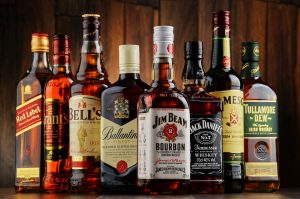Parliament has rejected the proposal to raise the minimum volume of alcohol in a bottle to 750 milliliters. The bill had been fronted by Wundanyi Member of Parliament, Danson Mwakumona.
It had sought to amend the 2010 law by limiting the packaging of alcoholic products in containers of a minimum of 750 milliliters from the current 250 milliliters, to curb consumption and abuse among the youth and low-income earners.
Mr. Mwakumona had argued that the sale of alcoholic drinks in low quantity packages made it easily affordable and accessible to the youth.
The National Assembly’s Administration and National Security Committee however disallowed the proposed changes saying there were sufficient existing laws to guard against alcohol consumption among the youth.
The Committee noted that the proposed measures in the Bill would impact negatively the alcoholic beverage industry consequently leading to job losses and reducing the amount of tax remitted to the government.
READ>>>>>KRA Seizes Alcohol Worth Sh12mn With Fake Excise Stamps

If passed, the new law would have led to an increase in the average cost of beer from the current Sh190 to at least Sh285 a bottle as manufacturers pass the increased cost to consumers. This would have triggered a rise in consumption of cheap and illicit liquor by low-income earners who would be locked out of their favorite drinks.
The proposed bill would have made Kenya’s packaging threshold one of the highest in the world and worsen the fortunes of an industry that is still grappling with the Covid-19 economic meltdown.
Those in breach of the proposed packaging rule risked a fine of Sh50,000, a jail term of six months or both, says the Bill whose fate now lies in the hands of the lawmakers who will vote to reject or agree to the committee’s recommendations.
KBL petitioned lawmakers to reject the proposal, saying it would incur losses of up to Sh3.5 billion in writing off beer bottles, cans, crates, and the current packaging machinery and a further Sh7 billion to install a new packaging line and acquire the 750ml bottles.
KBL also warned that the proposed law would force players in the alcohol value chain that includes farmers, distributors, and bars to shed at least 60,809 direct and indirect jobs due to a reduction in volumes of alcohol sold.
“Reduction in the volume of alcohol sold by KBL/UDV distributors would force them to cut workforce by 33 percent…Bars and restaurants that heavily rely on alcohol sales will have to cut 60,000 jobs with a total earning capacity of Sh1.8 billion per month,” the firm said in the petition.
The rejection of the new packaging requirements brings relief to the beer manufacturers who would have been forced to purchase new bottles and install new packaging lines and reduce their staff numbers due to a fall in volumes of alcohol sold.
Kenya shut down bars in March last year after reporting the first coronavirus case leading to thousands of job losses and permanent closure of some of the establishments.
Bars started partially reopening in September but the sector is still struggling to regain its footing.
READ>>>>>Parliament Passes Bill To Pay Former MPs Sh100K Monthly Life Pension












Leave a comment